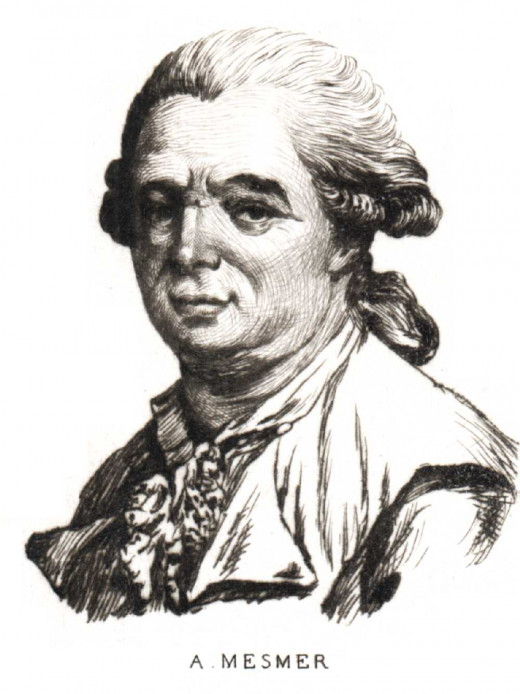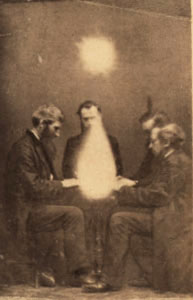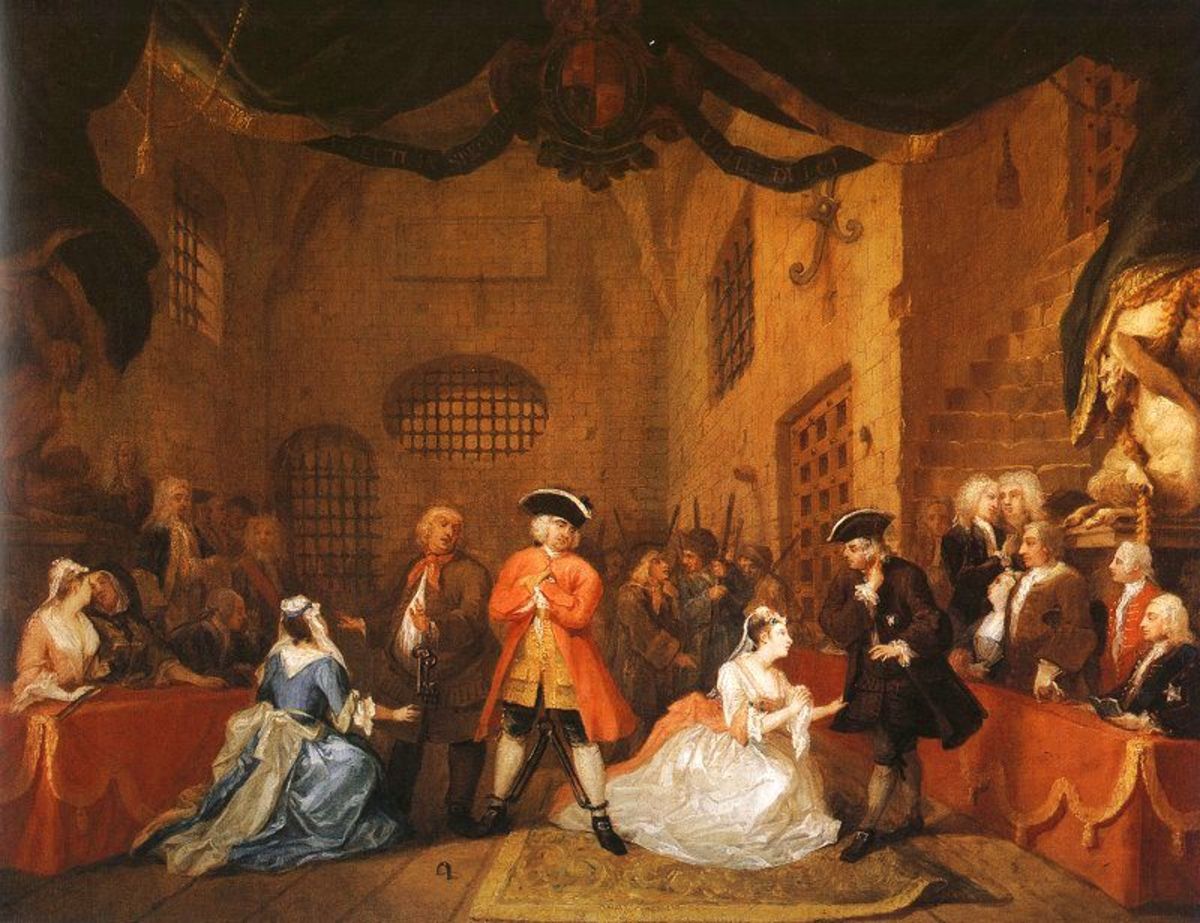Psychometry
Psychometry is the ability to sense associations by touching an object or person. Just by touching a person, someone who was adept at psychometry was said to be able to describe that person's personality and identify any diseases that the person had. Most scientists consider psychometry a form of extrasensory perception and a pseudoscience. The word psychometry comes from the Greek words "psyche," meaning "soul," and "metron," meaning "measure." The idea was developed in the 19th century and was based on the 18th century concept of animal magnetism. Psychometry eventually led to the religion of Spiritualism which a small number of people still practice to this day.
" My investigations of the nervous system of man for the last twelve years, have clearly shown that its capacities are far more extensive, varied and interesting, than physiologists or philosophers have been willing to acknowledge." - Joseph R. Buchanan

Buchanan was influenced by the concept of animal magnetism, a term coined by German physician Franz Mesmer in the 18th century. Mesmer believed that animate beings had a life force that connected them to everything else in the universe. Mesmer's ideas provided the foundation for magnetic healing, Spiritualism, and hypnotism.
Origins of Psychometry
In the 19th century American physician Joseph Rhodes Buchanan developed a spiritual science around psychometry, a term which he himself came up with in 1842. He believed that all things gave off an emanation, that the world was full of "mental fossils" that would expand the known history of mankind, that psychometry would surpass empiric science, and that all people would eventually be enlightened through psychometry. He explained his ideas in his treatise Manual of Psychometry: The Dawn of a New Civilization which he wrote in 1885.
Buchanan wrote that psychometry was already known to saints, oracles, and fortune tellers and he wished to bring the ability to the masses. He considered people with these abilities to have a strong psychometric sense. The psychometric sense is similar to the sixth sense, ESP, and intuition.
Buchanan did an experiment with making inferences about people by holding handwritten letters from them or pressing the letters against the forehead, and created the term "mental daguerrotype," to refer to the information gained through this method. (A daguerrotype was an early version of the photograph.) He theorizes that a "pyschomaterial combination" was made when the letter was written with the writer transferring some kind of energy to the paper. Letters that were written with strong emotions seemed to have a greater impact when pressed against the forehead of another person.
Buchanan believed that locks of hair and clothing could create the same mental daguerrotypes of the person. Also physical contact with another human being could be used to detect diseases in the person being touched, while touching a person's head could reveal his/her personality.
Buchanan saw many applications for the psychometric sense. It could judge character better than phrenology and physiognomy, provide historical information, determine guilt or innocence in court, determine sanity or insanity, and provide medical diagnoses.

Spiritualism played an interesting role in the Women's Movement. Many mediums advocated women's suffrage, prohibition, and abolition of slavery. These mediums were known as "trance lecturers." The new religion of Spiritualism appealed to women because many established churches were not interested in promoting women's rights or the abolition of slavery.

Spread of Psychometry
American Anarchist Stephen Pearl Andrews spread Buchanan's ideas in the latter half of the 19th century. Andrews too believed in a priori knowledge, knowledge that is gained independent of experience, and that it would replace empirical science. Andrews later became a religious leader promoting Spiritualism. The main idea of Spiritualism is that there is a spirit world and spirits dwelling in it can communicate with the living.
Spiritualism spread from the 1840s through the 1920s, reaching a following of 8 million people in the United States and the United Kingdom. There was a similar movement called Spiritism in Latin American and non-English speaking Europe. The typical spiritualist was an upper or middle class person. In the aftermath of the American Civil War families wanted to contact their loved ones who had died in battles. Séances were one of the key practices of Spiritualists. For Spiritualists, the spirit world replaced the Christian idea of Heaven and Hell.
There was some backlash from Christians, some of who thought Spiritualism was a form of witchcraft and that the Bible forbids contact with spirits. Spiritualists, on the other hand, believed that knowledge gained from their direct contact with spirits was more important than the Bible and its teachings.
Psychometry was picked up by stage artists and mediums who would "read" an object during a performance or séance. An increasing number of people began performing fraudulent psychometry for profit, which eventually led to a decline in the Spiritualism movement as their tricks were uncovered.
Though psychometry has lost credibility, fictional psychometric abilities are still popular in books and comics, and a few Spiritualist churches and summer camps remain. In the United States they are linked by the National Spiritualist Association of Churches. Spiritism is still practiced in Brazil.
James Rhodes Buchanan's Manual of Psychometry can be downloaded for free from the California Digital Library.






